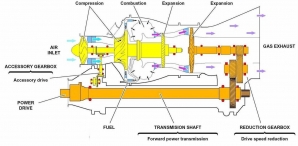Need for low cost, no-frills airports and cheap aviation fuel!
Thursday, 06 March 2014 08:52
Low cost airports have several advantages, such as uncongested and free from ground and air traffic operations. In addition, air travellers will not have to shell out the hefty fees charged by airports in metros
In November, last year, a Parliamentary Committee, headed by Sitaram Yechury recommended that the Airport Authority of India (AAI) be asked to manage all the airports rather than giving away any for private ownership. In fact, Yechury is reported to have said, the move to privatise seems to be a case of "privatisation of profits and nationalisation of losses"! This report came out at a time when the process of privatisation of Chennai, Kolkata, Lucknow, Jaipur, Ahmedabad and Guwahati was under way.
Yechury felt that the AAI was being made to run all loss making airports while the metro airports that earn profits were in private hands! He reiterated that AAI be asked to manage all airports, rather than giving them away to private management.
Since the election is around the corner, there appears to be some activity, particularly in Uttar Pradesh, where the AAI has signed a memorandum of undertaking (MOU) with the state government for developing several airports, including Meerut, Moradabad and Faizabad.
This agreement has been signed days before the model code of conduct for the next general election, which prohibit the government from undertaking any development work kicks in. However, this MOU was signed in the presence of Civil Aviation Minister Ajit Singh. It may be remembered that Ajit Singh has been winning from Bhagpat constituency, which is adjoining Meerut! Likewise, Mohammad Azharuddin is the Lok Sabha MP from Moradabad and Dr Nirmal Khatri is also the Lok Sabha member from Faizabad. We wonder if the Election Commissioner is getting sufficient feed-back on these matters!
It looks like that the rules relating to establishment of airports clearly stipulates that no new airport can come up less than150Kms from an existing airport. In the case of Meerut, which is close to Delhi, may be, a special clearance may have to be obtained before any work can commence!
In so far as the air passengers are concerned, they are looking at low cost carriers and no-frills airport, so as to reduce the costs of air travel. Due to severe competition, low cost carriers (LCCs) have been offering, practically, services like a full service carrier; their basic advantage is the better cost structure based on the type of aircraft used and presumably economies of wages paid to staff. In any case, most LCCs have full occupancy as their main advantage and they prefer to fly in and out of inexpensive two-tier and three-tier cities to reduce costs.
Low cost airports have several advantages, such as uncongested and free from ground and air traffic operations. These facilitate faster turnaround of aircraft resulting in lower operational costs. These low cost airports, as suggested by Civil Aviation, will also not be spending huge sums on expensive scanning X-ray machines or conveyor belts etc.
Air Asia, for example, is expected to use Chennai as the hub and would be using Trichy and Kolkata more than Delhi or Mumbai due to high airport development fee (ADP) and user development fee (UDF) for international flights. It will be Rs360 in Trichy as against Rs1,100 in Delhi as UDF! Saving of every rupee counts for the traveller.
It may be of interest for the readers to know that the country's first international private sector airport is being established in Aranmula in Kerala, which has recently received environmental clearance, and is expected to go into stream by 2015, despite political opposition and being located at less than the mandatory 150 Kms from both Kochi and Thiruvananthapuram international airports.
According to Gigi George, MD of KGS Aranmula International Airport Ltd, a Rs2,000 crore project, the project is on schedule as the work is progressing at reasonable speed and will be ready for commercial operation by 2015.
The Civil Aviation Ministry may announce any new proposals for setting up new airports, both big and small, as we inch towards the elections. All these are bound to help the air traveller; and our import cost of aviation fuel will also go up enormously, as more and more regional airlines begin to operate.
(AK Ramdas has worked with the Engineering Export Promotion Council of the ministry of commerce. He was also associated with various committees of the Council. His international career took him to places like Beirut, Kuwait and Dubai at a time when these were small trading outposts; and later to the US.)
Our Packages



News & Events
Chennai International Airport completes its first phase of flood-proofing after deluge last year. Is it enough?
Monday, 14 November 2016 05:40
The employees of the Chennai International Airport can’t forget how water engulfed the tarmac on December…Nine flights diverted over Delhi smog
Monday, 07 November 2016 05:49
JAIPUR: Nine flights, including three chartered planes were delayed by 4-5 hours from landing in Delhi…From The Blog

